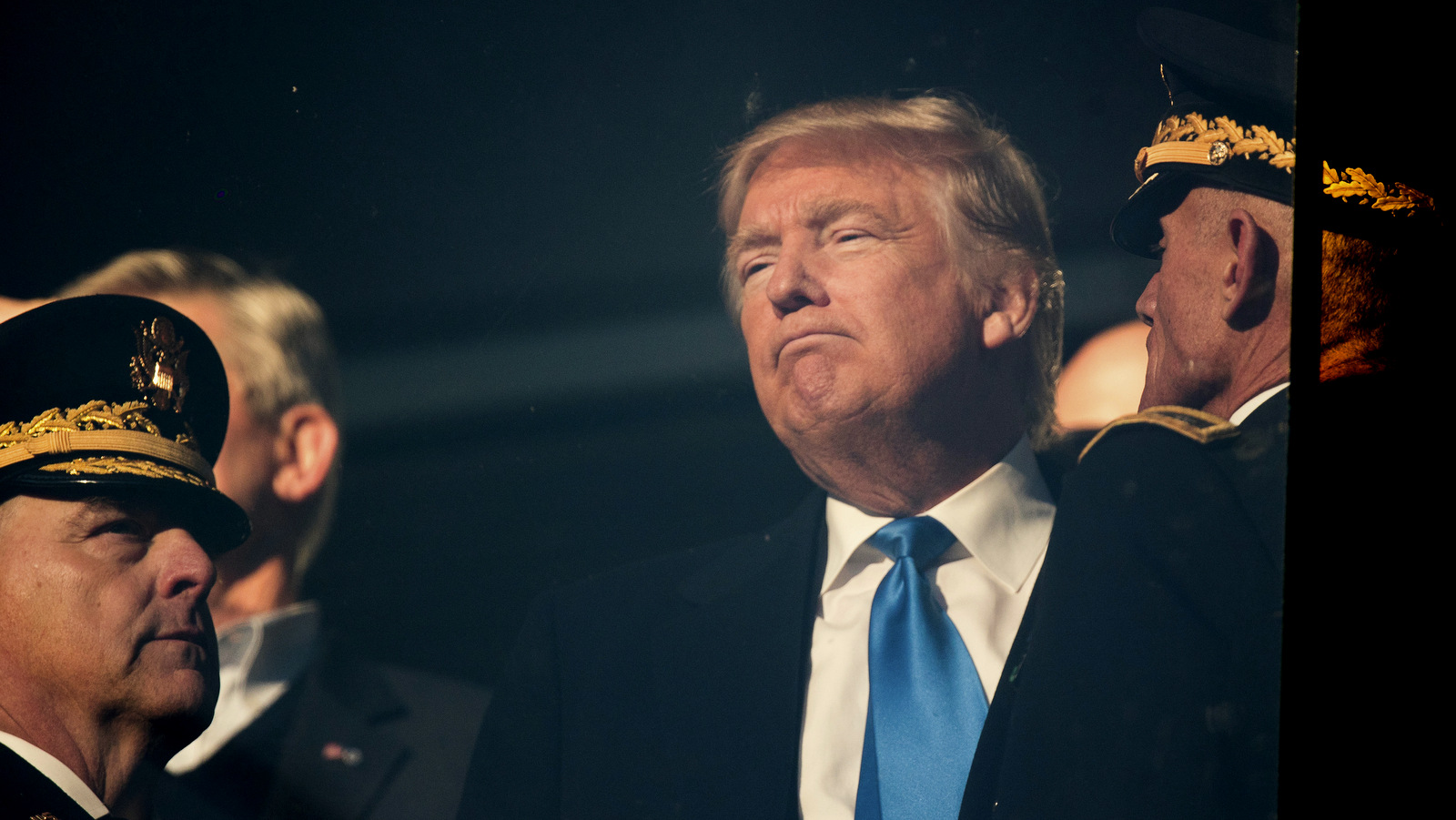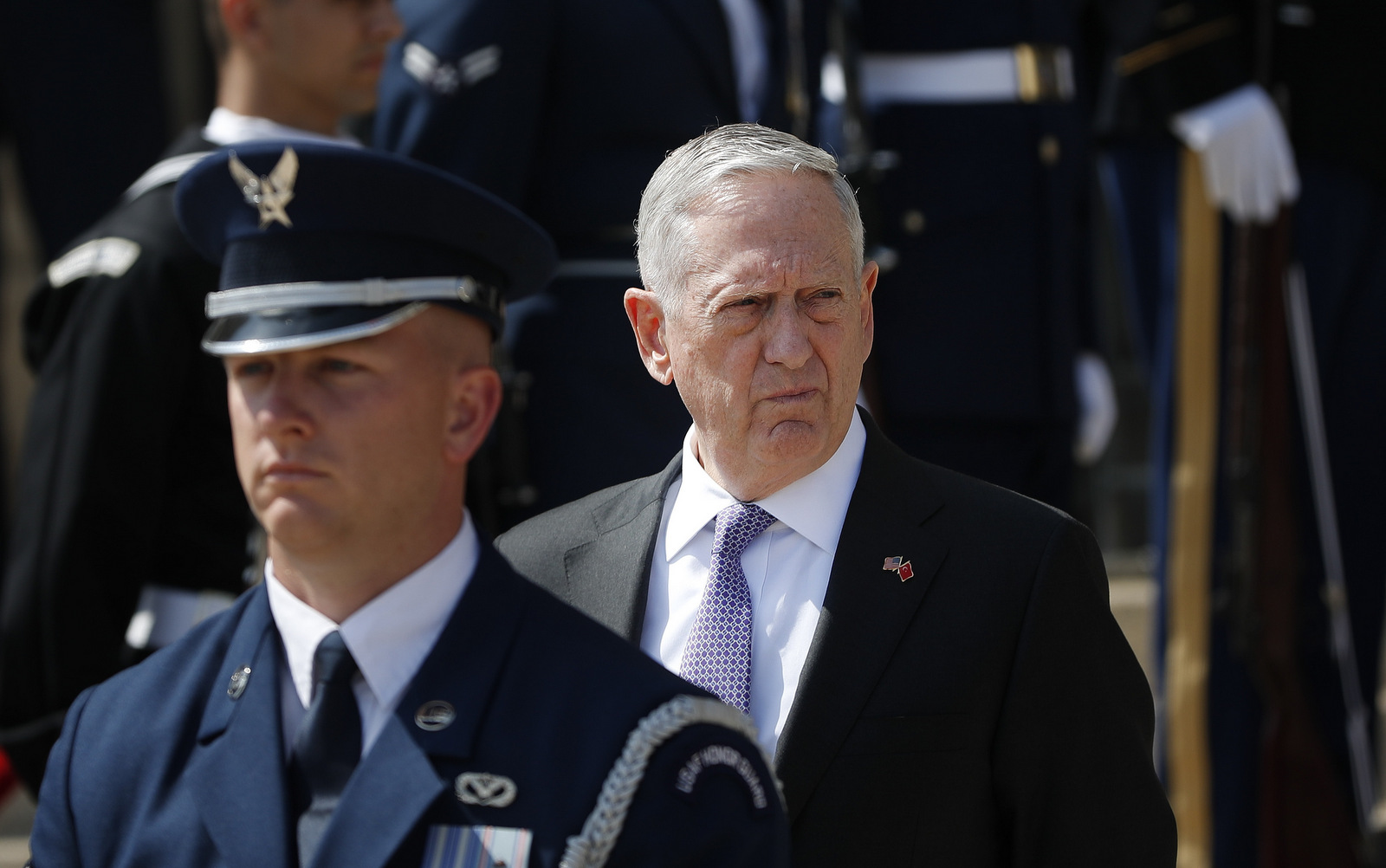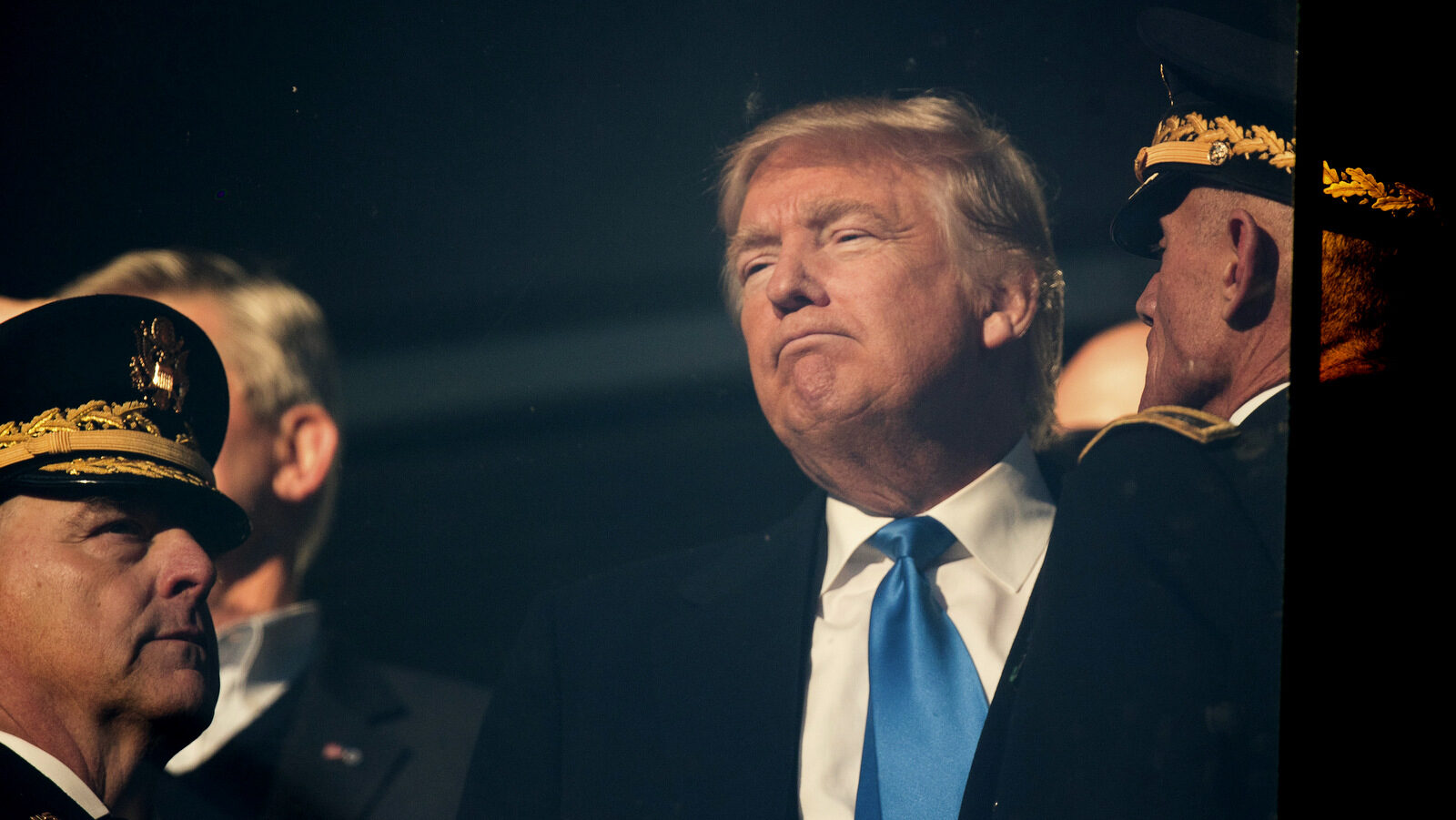
Last year, as Trump’s front-runner status in the Republican primaries began to truly unnerve the conservative establishment, several figures emerged as possible “fail-safes” to the increasing inevitability of a Trump-Clinton showdown. One of these figures was former four-star general James Mattis, now Secretary of Defense, who was courted by “an anonymous group of conservative billionaires,” as well as former aides of the Bush family. According to the Daily Beast, the billionaires numbered nearly a dozen and were comprised of “influential donors” and “politically-involved billionaires with deep pockets and conservative leanings.”
The potential of a Mattis presidency, though he himself was not inclined to run, galvanized many neoconservatives, with the Weekly Standard’s Bill Kristol suggesting Mattis might be conscripted into the presidential race and a group of conservative strategists hatching a plan to run Mattis as a third-party candidate. Though Mattis’ underdog candidacy never took off, it apparently didn’t have to.
Indeed, the anonymous conservative billionaires who sought to crown Mattis president are likely quite content, as the former general has gained significant control over the executive branch’s war powers in an unprecedented giveaway of executive power.
On the campaign trail, Trump seemed unlikely to make any type of power giveaway if elected, particularly to the top generals he so frequently criticized and had suggested he would fire upon assuming the office of the president. However, Trump’s campaign stance quickly began to soften after his inauguration, with him appointing Mattis to the position of Secretary of Defense. Yet Trump continued to offer rhetoric that the Pentagon’s top brass found disconcerting, meaning that it didn’t take long for the top commanders of the U.S. military to send Trump what was essentially an ultimatum.
In the beginning of March, Defense One published an article titled “Winning’ or Not, Trump Doesn’t Seem to Be Listening To His Generals,” which sought to give clarity to the “mixed messages” between military commanders, Trump and his inner circle regarding how best to counter terrorism abroad, particularly against Daesh (ISIS) presence in countries like Syria and Iraq. However, the article also made it clear that the general balked at a majority of Trump’s decision and actions, causing journalist Kevin Baron to note that Trump’s generals “increasingly sound like they’re working for a different president altogether.”
From complaints ranging from funding (despite Trump’s $54 billion defense budget increase) to Trump’s “unpredictability,” the U.S.’ top generals threatened to resign in protest if Trump did not choose to listen to their advice and accept their plan to fight Daesh, a plan that is set to be a continuation of the so-called Obama doctrine.
The generals also balked at what they considered a paltry budget increase and made clear their desire for more independence, with General Tony Thomas of U.S. Special Operations Command telling Defense One that “unless we get governance back on the side of our military efforts, this is going to be a long struggle.” The article ultimately concludes that “what ‘the generals’ say matters, and what Trump says about them and their advice is confusing. The new president’s actions will speak louder than words.”
Running The Show Like A CEO

It didn’t take long for Trump’s actions to begin speaking much louder than his “unpredictable” rhetoric. Just days after Defense One’s story about the dissatisfaction of “the generals,” the Daily Beast ran an article titled “Generals May Launch New ISIS Raids Without Trump’s OK” in which it was announced that “President Donald Trump has signaled that he wants his defense secretary, retired Marine Gen. Mattis, to have a freer hand to launch time-sensitive missions.”
According to the article, Trump had reportedly signaled that he wanted “to operate more like the CEO he was in the private sector in such matters and delegate even more power to Mattis, which may mean rewriting one of President Barack Obama’s classified Presidential Policy Directives on potentially lethal operations in countries where the U.S. is not officially involved in combat.”
Essentially, the new model of command that has arisen involves “pre-delegating authority to Mattis, that authority could be pushed much further down the chain of command – all the way down to the three-star general who runs JSOC. The elite force will be able to move into action, informing the national-security apparatus of the operation but not having to wait for permission.” Said differently, the White House is still informed of military operations, but no longer has commanding authority over the U.S. military.
Since Trump first signaled his plan to give Mattis and the Pentagon commanding authority over their own military operations, the actions of the U.S. military have noticeably been at odds with Trump’s campaign promises – including the deployment of Navy destroyers in the South China Sea and South Korea; the deployment of troops to Somalia, Syria and Iraq; and the U.S. bombings of Syrian government target.
Then, last Friday, the Wall Street Journal reported that Trump would be giving “generals more freedom to make decisions” in the fight against ISIS. The report notes that “as President Donald Trump’s administration urges them to make more battlefield decisions on their own, […] America’s top military commanders are implementing the vision articulated by Defense Secretary Mattis.” According to a senior defense official who spoke to the Journal, Mattis “is telling them:
‘It’s not the same as it was, you don’t have to ask us before you drop a MOAB [Mother of all Bombs]’” or other major weapons of war.
Indeed, the use of large-scale weaponry in Afghanistan is particularly telling, as Trump was not even informed of the use of the U.S.’ largest non-nuclear bomb until after it was detonated, as the decision had been made – without executive branch approval – by General John Nicholson, head of the U.S.-led coalition in Afghanistan. Trump’s “backseat” role in key military actions was also revealed in a recent interview in which the president was asked about the decision to bomb a Syrian government air base earlier this month. Trump was able to recall the details of the cake he was eating at the time of the strike, but not the country that had been bombed.
While many have noted in past decades that the increase in the executive branch’s control over military actions is a troubling development, the U.S. military is quickly morphing into judge, jury and executioner of any enemy they see fit and are, as recent events suggest, free to attack them in anyway they choose – short of dropping a nuclear bomb. That is, for now.
With top U.S. generals led by Mattis now set to hold greater combat authority than the president himself, one can’t help but wonder how long it will take until such autonomy spirals out of control – especially considering the Pentagon’s documented history of wastefulness, dishonesty and disrespect for civilian life. It looks like Mattis has managed to gain some of the “presidential authority that some conservative billionaires has wished for him months ago.


